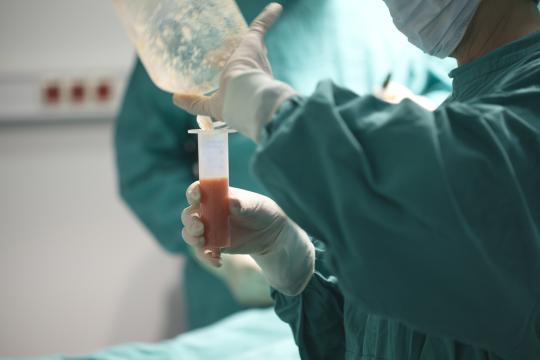
Pressing questions like “do you brunch?” and “do you like animals?” are vitally important when judging the merits of a human being, but in choosing a plastic surgeon you’re going to have to go even further. So here’s what you do. You sit your surgeon down, you look them sternly in the eye (if you can muster up the slightest hint of suspicion it will heighten the drama—always a plus), and you ask them, “Do you brunch?” and “Do you like animals?” Then you demand that they answer the following questions (you can also ask nicely, ‘cause people tend to respond better to that):
Is your surgeon certified by the American Board of Plastic Surgery or the Royal College of Physicians and Surgeons of Canada .
If the answer to this question is no, you can consider that a deal breaker. These organizations exist to provide board-certification to doctors who have proven and extensive training in a particular medical or surgical speciality. Remember, any clown with a white coat can hang a shingle that reads “Plastick Surjury”. If your surgeon is lacking at least one of these credentials… they’re probably lacking in ability too.
Is your surgeon a member of the The Aesthetic Society?
Plastic surgery, cosmetic surgery, aesthetic surgery—call it what you will—choosing a doctor who is also a member of ASAPS means that your surgeon has significant experience and training and has met ASAPS high professional and ethical standards. It also means that your surgeon operates strictly out of accredited, state licensed or Medicare-certified facilities. It’s a great way to ensure that your surgeon is the best of the best. ASAPS also provides a handy Select A Surgeon tool to help find a doctor who meets these and other important criteria.
Where will your surgeon perform your procedure?
Um… in an operating room? Not so fast. Cosmetic surgery can be performed in a hospital, a surgical center and/or an office-based surgical facility depending on the procedure and the doctor. Ask your surgeon if they have hospital privileges and if so, at which hospitals and for what specific procedures. Hospitals grant operating privileges only to trained and competent doctors who they’ve thoroughly evaluated. And if your procedure is set to occur in a surgical center or office-based facility—you guessed it—there are questions you'll need to ask for that too.
Is the surgical facility where you'll have your surgery accredited by a nationally or state-recognized accrediting agency, or is it state-licensed or Medicare-certified?
Understanding the “credentials” of the facility where your procedure is to be performed is just as important as understanding the “credentials” of your doctor. It’ll also play a part in the safety and success of your procedure, as well as the cost. And let’s not pretend that that's not an important deciding factor. Understand that while most office-based facilities are not accredited, that’s no reason to assume that those facilities don’t have a good safety record, in fact many office-based facilities have comparable safety records to hospital ambulatory settings. So again. Questions. Ask ‘em.
Isn't a personal referral enough to prove that a surgeon is qualified?
It’s a good start, but no. Any plastic surgeon’s board-certification should always be verified independently by contacting the American Board of Plastic Surgery (www.abplsurg.org). You can also us the aforementioned ASAPS Select A Surgeon tool if your mother’s-sister’s-cousin’s plastic surgeon recommendation isn’t quite adding up.
Once you’re certain of your plastic surgeon’s qualifications you can get on with the business of… asking more questions. This time about your actual procedure, the risks, and what to expect during recovery. In the spirit of leaving no stone unturned, for the next few Friday's we'll be posting several handy lists of what questions to ask and who the heck to ask them to. ASAPS also provides a helpful guide on Questions to Ask Your Plastic Surgeon. You're welcome.







